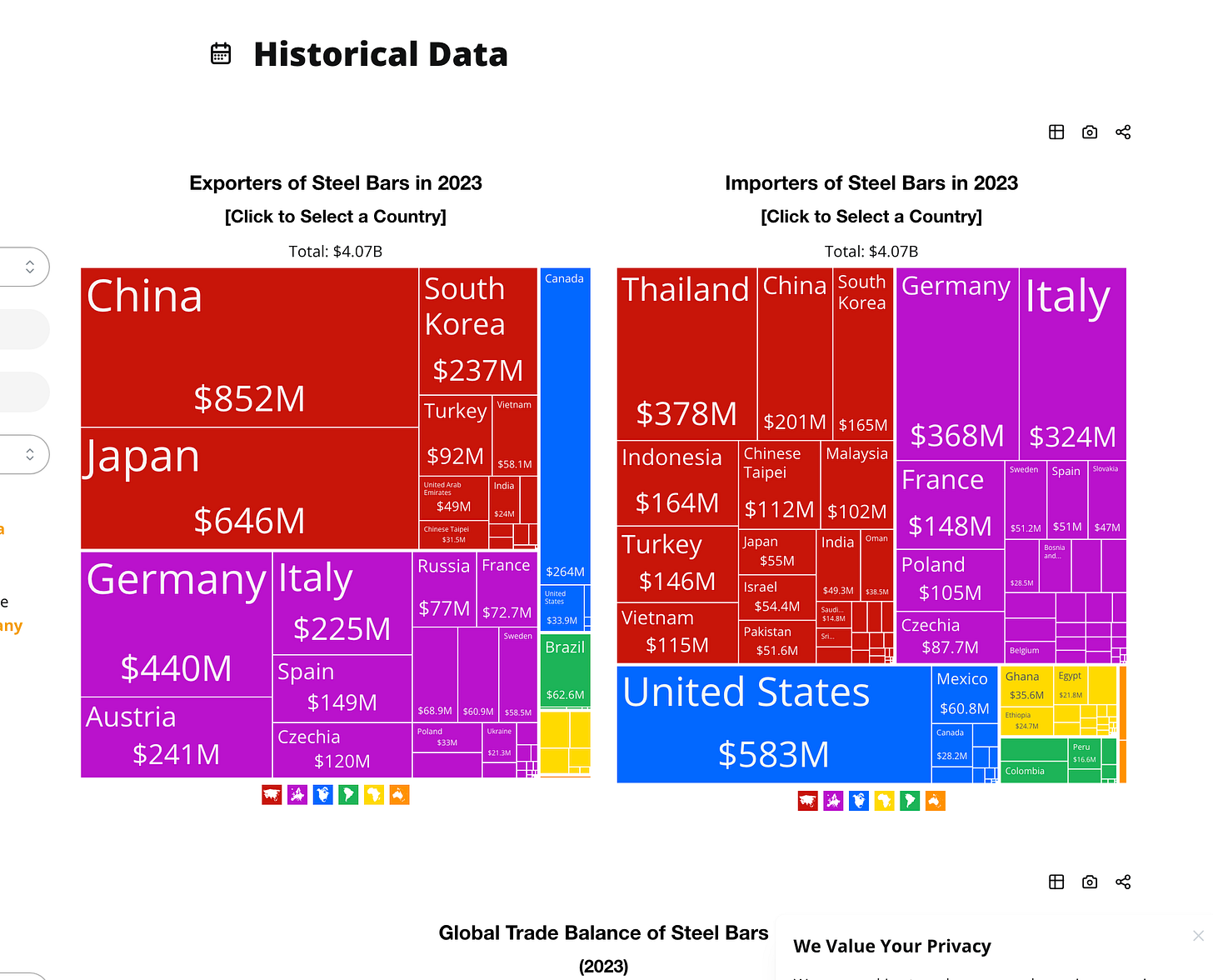A short and incomplete case study.
Think of this when you think of tariffs.
I spent one year at a machine shop in Morris County as shipping manager. I was maybe 32 when I left to work at The Prudential. I enjoyed my time at Swisscomatic but wanted to find a job where I could advance. I spent the rest of my time with 3 large insurers, Prudential, TIAA and then NY Life where I retired in 2021.
Swisscomatic was a machine shop in Cedar Knolls NJ. It used Escomatic automatic screw machines to make small parts from steel bar stock. The machines were made in Switzerland. This is the link to ESCO USA which still exists: https://escomaticusa.com/ Our customers included several large firms including AT&T.
The bar stock (steel) was mostly imported. Though the US makes some bar stock, it imports more than it makes. This link has more about steel bars: https://oec.world/en/profile/hs/steel-bars. We import a lot from Japan, Germany, Austria, South Korea and Canada, our ostensible allies. We also import stock from China. By the way the US even exports some bar stock, though we are a net importer.
One of out largest customers was AT&T. We made tiny parts that went into small devices used in telecommunications. This was an era when digital controls were replacing mechanical controls. Over time the market for what Swisscomatic made shrunk to such point that the business closed in 1996. It was not purchased by another business, it simply stopped operating. The owner was Harry Ohiri who died in 2007. No one from the family elected to keep the business going - and he did have children, including 3 boys.
The area around the former machine shop now has several medical and dental offices, several associated with Atlantic Health Systems which employs almost 5,000 doctors in northern NJ.
Small businesses have individual arcs that include the founders, market variables and technological change. At the time I worked as Swisscomatic, most of the senior machinists were German immigrants who came of age in WW2. They were near retirement age in 1983 when I worked there.
The area around Swisscomatic once had a paper mill, Whippany Paper Board. And when we lived in Whippiny (from 1983 - 1997) we learned that there were many toxic waste sites in Hanover Township. One was in the back of the closed Swisscomatic machine shop.
Like with Hanover Township (that includes Whippany and Cedar Knolls) other places that once hosted factories have moved on. Thus Pittsburgh is now known for its technology businesses, finance and education. Steel mills have been replaced and Pittsburgh is better off. The old steel workers are now retirement age, but we hope their children have moved on to better jobs than the brutal work in steel mills.
Even old textile towns in the South have moved on. This article treats one such region: https://www.nytimes.com/2025/04/12/us/south-carolina-manufacturing-tariffs.html?unlocked_article_code=1._E4.SYOo.-kCRoD52fyeT&smid=url-share
PS, my family worked in textile mills in Paterson. One aunt was so bothered by the lint that she ended up working as a maid instead My mother elected to get an education and became a nurse and never looked back.
The magic of free markets is that individuals can behave in their own way and sometimes succeed. The notion that simply placing tariffs on most goods will somehow push ambitious folks to create factories that rely on entirely US sourced raw materials and parts is so utterly ridiculous that it can only be likened to the central planning of the old Soviet Union that never worked.
We can lament the changes over time but we cannot undo them with a single gesture.





Part of the problem with today’s Reign of Billionaires - headed by Donald Trump and Elon Musk - is that these guys never had to physically work … except to grin and say, “Thanks, dad.”
Excellent analysis